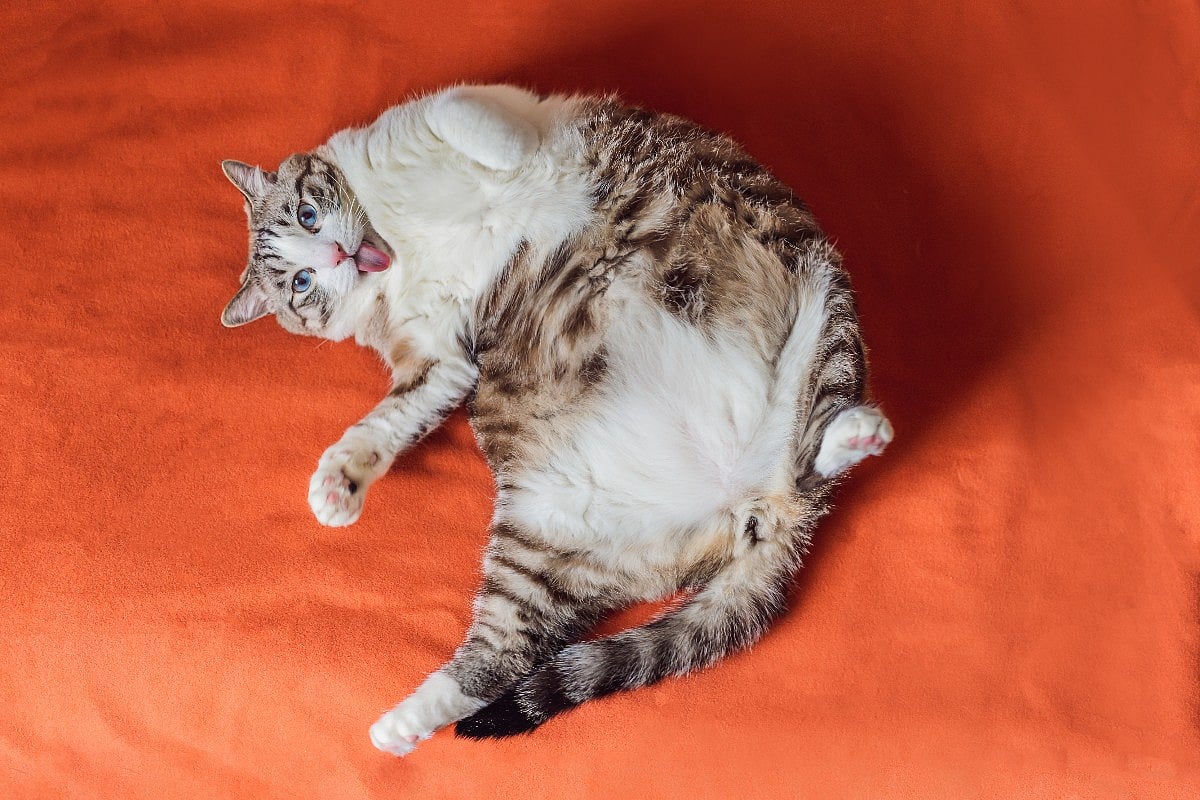Get Healthy!

- Dennis Thompson
- Posted July 19, 2024
Fat Cats Purrfect for Studying Obesity in Humans
Pudgy with a purpose: Fat cats could help humans better understand the way gut bacteria influences conditions like obesity and type 2 diabetes, a new study claims.
Food-related changes in obese cats’ gut microbiome have striking similarities to the way diet affects the gut of humans, researchers reported recently in the journal Scientific Reports.
As a result, pet cats might be the best source of information about the human microbiome, and whether altering gut bacteria could help battle obesity, researchers say.
“Being able to see changes in cats that come up in the context of obesity and type 2 diabetes in people makes them a really good model to start looking at more microbiome-directed therapeutics for obesity in humans if we’re seeing a similar shift,†said lead researcher Dr. Jenessa Weston, an assistant professor of veterinary clinical sciences at Ohio State University.
“Animals share our beds. They share our ice cream. There are all these things that people do with their pets that highlight they are a naturally occurring disease model with similar environmental exposures as humans,†Weston added in a university news release.
For the study, researchers fed seven obese cats a rigidly engineered diet for 16 weeks. The diet progressed from free-feeding of commercial cat food to feeding a special weight-loss diet, then to calorie-restricted feeding of the weight-loss food.
Researchers found that a short-chain fatty acid called propionic acid increased in fecal samples of cats losing weight on the calorie-restricted diet. Propionic acid has been shown in other mammals to help regulate appetite, reduce fat accumulation and protect against obesity and diabetes.
This increase in propionic acid was associated with an increase in the gut bacterium Prevotella 9 copri, results showed.
“When the cats are on the special diet formulated for weight loss, propionic acid goes up and stays high, and then goes back down when they’re put back on the maintenance diet. So, it really is a dietary change,†Winston noted.
“This paper highlights that when we calorie-restrict cats that are obese, we can alter their microbial ecosystem -- and those community shifts that we see likely correlate with some metabolic outcomes,†Winston added.
The results also indicate that observed changes in the gut bacteria of pet cats could provide meaningful info on how dieting affects the human gut microbiome, Winston said.
“Microbes we saw in this study also come up again and again in human studies -- and clearly, people aren’t eating cat chow, right?†Winston said.
Winston is now overseeing two large clinical trials exploring the potential for fecal transplants to help overweight dogs and cats lose weight.
The weight-loss cat food in the study was provided by Nestle Purina, which also provided funding for the research.
More information
Harvard Medical School has more on the gut microbiome and health.
SOURCE: Ohio State University, news release, July 17, 2024






